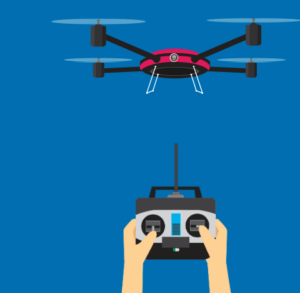 During yesterday’s House Aviation Subcommittee hearing on drones, witnesses testified that the U.S. must work harder on regulation to maintain its global position in the industry. Witnesses from all areas of the industry, including representatives from Stanford University, AirMap, AUVSI and FAA spoke to committee members. Major power infrastructure was represented by the Southern Company. Those with stakes in the drone industry had one consistent message for lawmakers – speed up regulations.
During yesterday’s House Aviation Subcommittee hearing on drones, witnesses testified that the U.S. must work harder on regulation to maintain its global position in the industry. Witnesses from all areas of the industry, including representatives from Stanford University, AirMap, AUVSI and FAA spoke to committee members. Major power infrastructure was represented by the Southern Company. Those with stakes in the drone industry had one consistent message for lawmakers – speed up regulations.
Stanford Professor Juan Alonso, a participant in multiple FAA drone committees and a researcher at the Aerospace Development Lab, said in written testimony that “a nimbler and more rational” regulatory approach would help the US to regain prominence in the industry. While the U.S. has been working to develop drone technology, write Alonso, “The rest of the world has not been sitting in the sidelines: multiple countries have recognized the potential civilian and military value of drone technologies and companies that produce small and medium-sized drones have been created and are thriving. These foreign companies are laying the foundation for more complex vehicles and uses and have come to dominate this market.”
Alonso says the U.S. needs to address three areas to maintain market position: more testing opportunities for new technologies, more publicly available data on testing results, and a faster moving regulatory process.
“How do we make sure that the situation in the United States encourages both US and foreign companies to develop and test here and not abroad?” asked Alonso. “How do we setup the proper regulatory environment so that companies can plan for both the testing and deployment of their systems? How do we train and retain the technical talent that will be needed to realize this vision? How, above all, do we ensure that the jobs created by this new field stay here in the US?”
William Goodman, General Counsel for AirMap, continued the theme. “Internationally, other companies are competing with the United States to integrate drones into their airspace more quickly. Other countries’ openess to experimentation has accelerated into regulatory action and standards-setting that threatens to leave American businesses behind,” Goodman writes. “We have no choice but to work harder and faster to safely integrate drones into the U.S. national airspace.”
Brian Wynne of AUVSI left no doubt about where the responsibility for supporting the drone industry lies. “…Technology is advancing at lightning speed, especially in the realm of UAS. The promise of UAS is not held back by innovation, imagination or technology, but by a lack of regulatory clarity,” writes Wynne.
“We need a new national imperative in unmanned systems that, like the air traffic control system and interstate highway system before it, creates greater capacity, fulfills consumer demand and facilitates the future of commerce. Industry is bringing the technology; government needs to do more to support it and advance innovations.”
Dan Ellwell, Deputy Administrator of the FAA, responded to these remarks by saying that the FAA was moving quickly on regulation, while acknowledging that more needs to be done.
“The FAA’s progress in accommodating new technologies and operations demonstrates that the agency is well positioned to maintain its status as the global leader in safe and efficient air transportation. The progress we have made would have seemed unimaginable not long ago,” said Ellwell. “We know, however, that these accomplishments are only the first step. There are many important issues yet to be addressed and we will continue to work with our stakeholders as we write the next chapter in aviation history.”

Miriam McNabb is the Editor-in-Chief of DRONELIFE and CEO of JobForDrones, a professional drone services marketplace, and a fascinated observer of the emerging drone industry and the regulatory environment for drones. Miriam has penned over 3,000 articles focused on the commercial drone space and is an international speaker and recognized figure in the industry. Miriam has a degree from the University of Chicago and over 20 years of experience in high tech sales and marketing for new technologies.
For drone industry consulting or writing, Email Miriam.
TWITTER:@spaldingbarker
Subscribe to DroneLife here.







[…] post Congressional Testimony Focuses on Competition: “The Rest of the World Has Not Been Sitting in… appeared first on […]